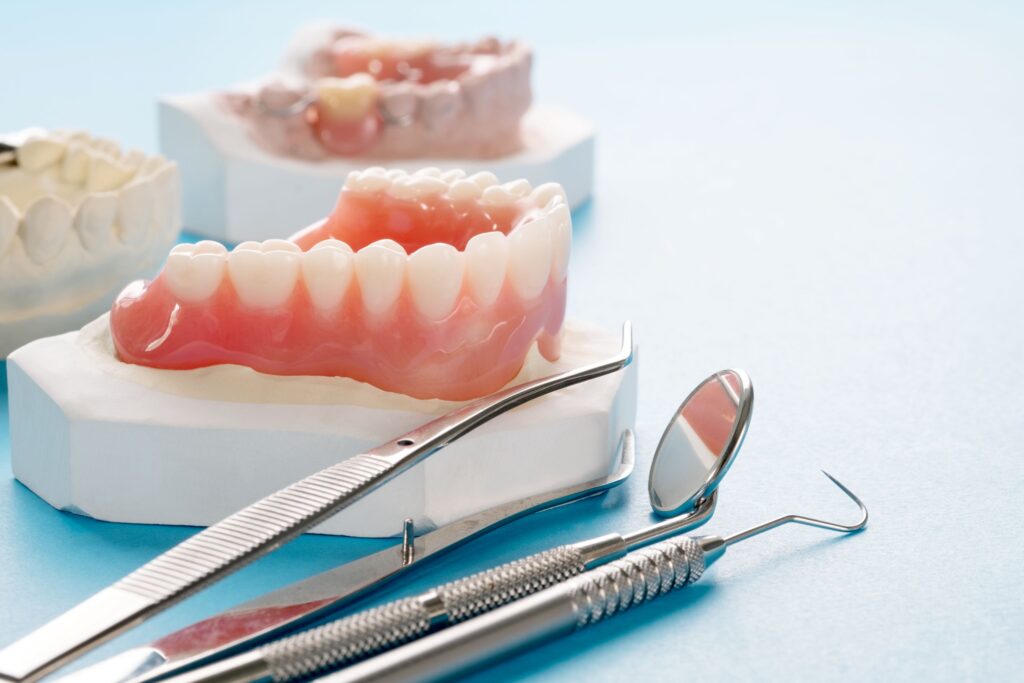
Dentures are the tried-and-true solution for tooth loss because they’re a versatile way to simultaneously restore your smile’s appearance and functionality. They’re custom-designed at every stage of their creation to look just like your natural teeth. Plus, they’re made to fit like a glove, so they’re comfortable to wear.
However, as your jawbone thins, your dentures eventually start to come loose in your mouth and must be repaired before they cause harm. Many patients wonder if trying to fix them at home is safe, but it’s not usually recommended. Continue reading to find out why!
What is Denture Relining?
Would you be surprised to learn that the roots maintain your jaw? They stimulate new bone growth every time you bite down or chew to keep it active and healthy so it can continue to serve as a firm foundation to your pearly whites. When some go missing, you can lose up to 25% of the surrounding bone mass within the first year.
This process flattens the bony ridges in your mouth, leaving your dentures without as much material to form a bond with. As a result, they can become destabilized, increasing the likelihood of developing sores, gum disease, or other oral issues. Your dentist can adjust the fit by taking new impressions so a dental laboratory can add to the acrylic lining of your teeth so they can suction against your gums correctly.
Can I Reline My Dentures Myself?
There are many do-it-yourself denture relining kits available for purchase that claim to effectively fix your restoration so it fits correctly. Unfortunately, they often don’t provide the desired results, and some patients inadvertently injure their prosthetics or their smiles during the attempt.
For instance, most of these kits contain soft relining materials that solidify with the heat in your mouth, but it isn’t easy to apply just the right amount of product to succeed. Many people also struggle to place the mold correctly in their mouth because they can’t see clearly what they’re doing. Excess material can cut into the tender tissues of your mouth, making wearing your restoration incredibly uncomfortable.
Altering the base of your own prosthetics can also hinder your chewing power. If your upper and lower teeth don’t touch correctly when you bite down, you could develop a malocclusion or TMJ (temporomandibular joint) disorder with repeated or prolonged use.
The best way to repair your dentures and ensure a proper fit is to schedule an appointment with your dentist!
Meet the Author
Dr. Tarangini Suggala enjoys helping people of all ages build and maintain happy, healthy smiles. She initially earned her dental degree in India and then earned another degree from The Boston University Henry M. Goldman School of Dental Medicine after relocating to the United States. Now, she provides a complete array of services to meet all your needs conveniently under one roof, including dentures. She combines a caring approach with state-of-the-art equipment to improve patient comfort while delivering accurate results intended to last. You can request an appointment on the website or call (972) 446-1111.
